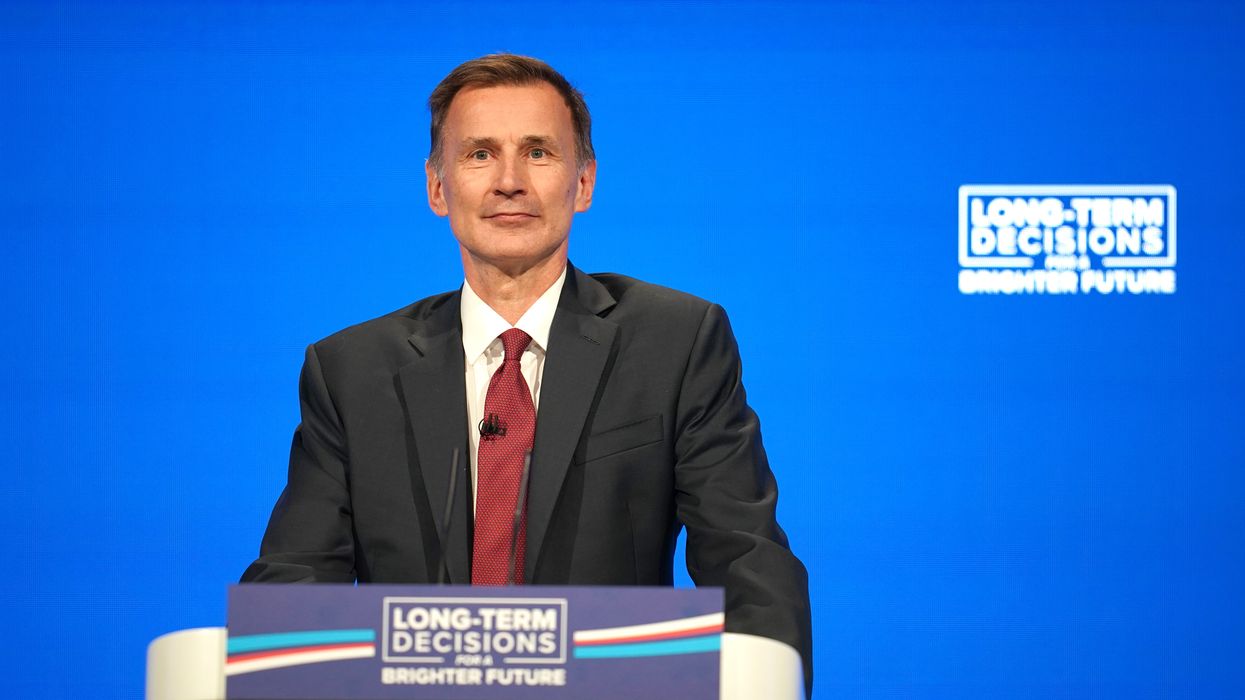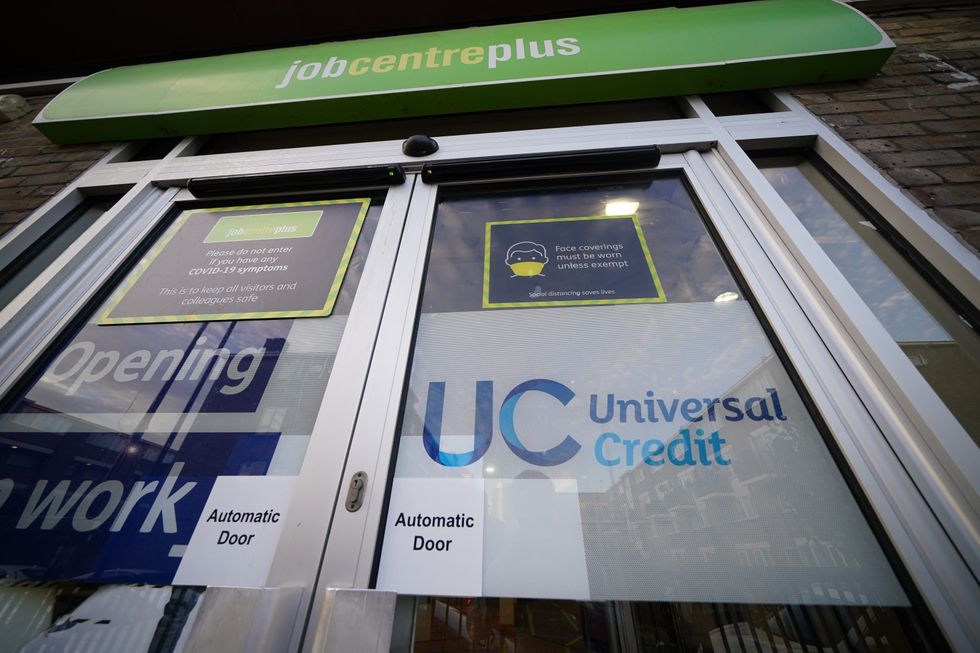Universal Credit could be stopped immediately after 12 months as Jeremy Hunt unveils strict new rules

Jeremy Hunt will announce stricter Universal Credit sanctions in the Autumn Statement
|GETTY

Chancellor Jeremy Hunt and the Secretary of State for Work and Pensions Mel Stride will announce major new Universal Credit rules in the Autumn Statement
Don't Miss
Most Read
Latest
Chancellor Jeremy Hunt will use his Autumn Statement to announce stricter benefit sanctions including a new process where Universal Credit claims could be closed after 12 months on the Restart Scheme.
The Department for Work and Pensions (DWP) will enforce stricter sanctions for people who are deemed able to work but “refuse to engage” with the Jobcentre or take on work offered to them.
Benefit claimants who “continue to refuse to engage” with the Jobcentre will be at risk of having their claim closed, the Government said today.
Chancellor of the Exchequer, Jeremy Hunt, said: "We’re serious about growing our economy and that means we must address the rise in people who aren’t looking for work – especially because we know so many of them want to and with almost a million vacancies in the jobs market the opportunities are there.
Do you have a money story you'd like to share? Get in touch by emailing money@gbnews.uk.

Universal Credit recipients who 'continue to refuse to engage' with the Jobcentre will face having their claim closed after 12 months, under the new rules
|PA
“These changes mean there’s help and support for everyone – but for those who refuse it, there are consequences too. Anyone choosing to coast on the hard work of taxpayers will lose their benefits.”
Within the Back to Work Plan, the government has announced testing additional Jobcentre support in England and Scotland, to see how intensive support can help people who remain unemployed or on low earnings into work after seven weeks into claiming Universal Credit.
They will extend and expand the Restart scheme in England and Wales for two years – with people who have been on Universal Credit for more than six months, rather than nine months, getting tailored, intensive support. The government said they would introduce a measure to close the claims of "disengaged" claimants who only get the standard allowance after six months.
The Government will also introduce a claimant review point for Universal Credit recipients who are still unemployed after the 12-month Restart programme.
In this new process, a work coach will decide what further work search conditions or employment pathways would best support a claimant into work.
If they refuse to accept these new conditions “without good reason”, the DWP will close their Universal Credit claim.
Rolling out mandatory work placement trials will also be introduced.
Through the claimant review point, people who haven’t yet moved into work by the end of the Restart scheme will have to accept a job or undertake time-limited work experience or “other intensive activity to improve their employability prospects”.
If they fail to do this at this stage, claimants will face an immediate sanction, with the full removal of the Universal Credit standard allowance.
There were 300,000 people who had been unemployed for over a year in the three months to July, latest published data shows.
Secretary of State for Work and Pensions, Mel Stride, said: “We are rolling out the next generation of welfare reforms to help more people start, stay and succeed in work. We know the positive impact work can have, not just on our finances, but our health and wellbeing too.
“So we are expanding the voluntary support for people with health conditions and disabilities, including our flagship Universal Support programme.
“But our message is clear: if you are fit, if you refuse to work, if you are taking taxpayers for a ride – we will take your benefits away.”
The government has also said the new WorkWell service, announced at Spring Budget, would be formally launched today.
They said it would support almost 60,000 long-term sick or disabled people to start, stay and succeed in work once rolled out in approximately 15 areas across England.
LATEST DEVELOPMENTS:

Mel Stride is the Secretary of State for Work and Pensions
|PA
Ministers are also planning to trial reforms to the fit note process to make it “easier and quicker” for people to get specialised work and health support, with improved triaging and signposting.
The Government said that as a result of the reforms, no Universal Credit claimant should reach 18 months of unemployment in receipt of their full benefits if they haven’t taken “every reasonable step” to comply with Jobcentre support.
The Government said plans to expand key health and employment programmes mean that over the next five years, an additional 384,000 people will be able to benefit from NHS Talking Therapies, which provides evidence-based psychological therapies including Cognitive Behavioural Therapy (CBT), for treatment of “mild and moderate” mental health conditions such as depression.
They aim to help an additional 100,000 people with severe mental illness to find and keep jobs over the next five years through the Individual Placement and Support (IPS) employment support programme.
Through a Universal Support programme in England and Wales, the Government intends to match 100,000 people a year with existing vacancies and support them in their new role- an increase on the 50,000 outlined earlier this year.
Thomas Lawson, CEO of national anti-poverty charity Turn2us, said: "The Government is undermining the positive aspects of this plan by putting such a strong emphasis on the punishments people will receive if they don’t find work within the stricter parameters being set.
"If they are serious about getting people back into long-term sustainable work they need to improve trust with the people who could benefit most from the support on offer.
"People who contact Turn2us tell us the welfare system already feels punitive. The Government's own evidence shows sanctions don’t work, so why is it increasing the use of them?
"Widespread research shows sanctions worsen people’s mental health problems and plunge families, including children, into more severe hardship."
If the Government wants to succeed in supporting people and families who will be most affected by this plan, an approach of far more understanding, dignity and respect is the way forward."










